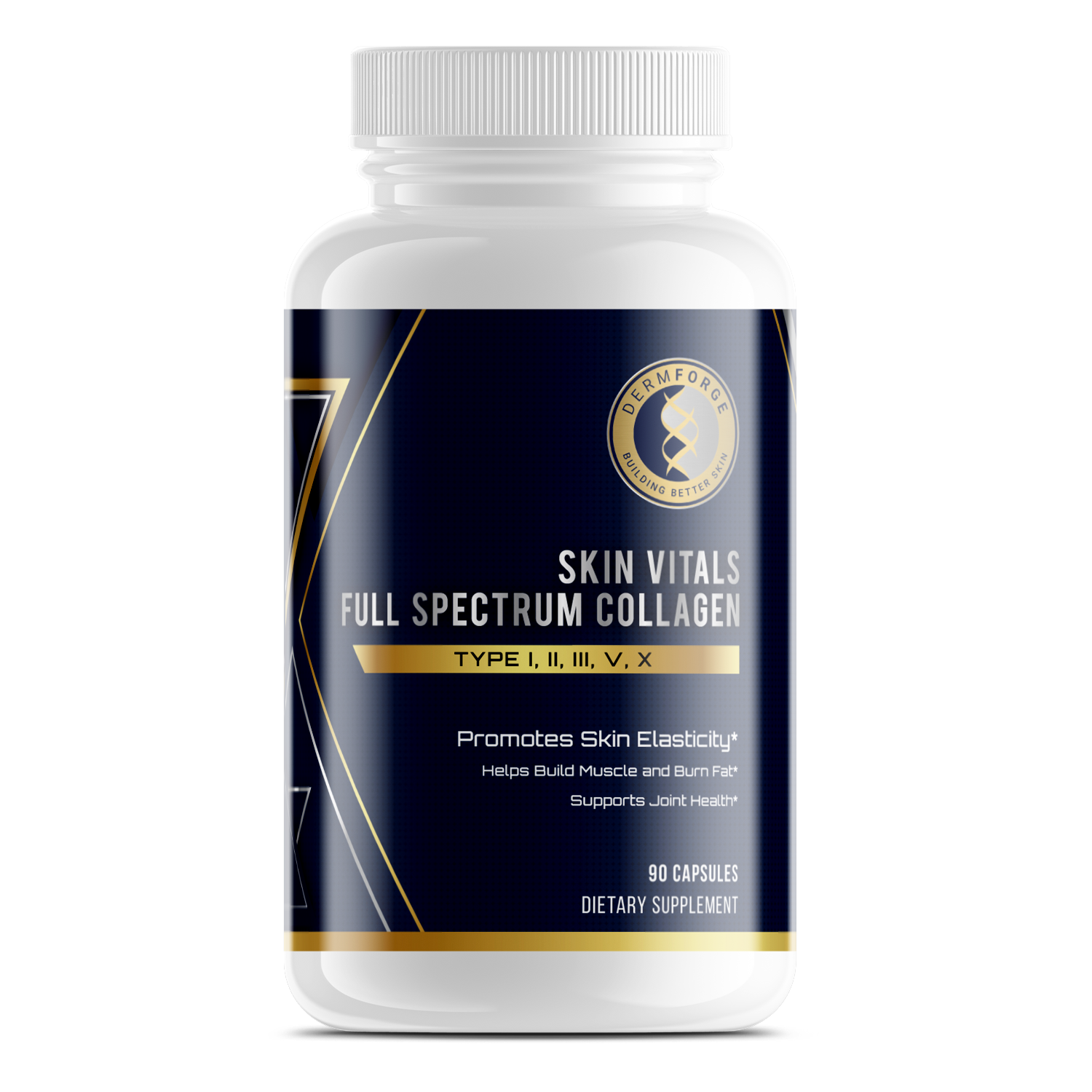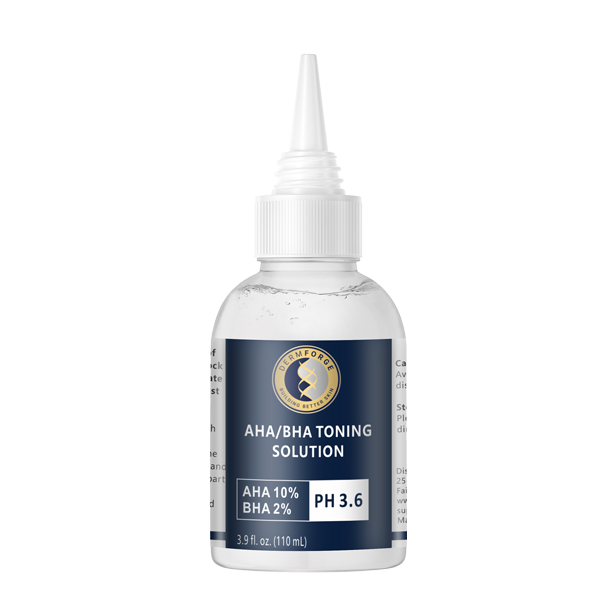Lemons are not just a tangy addition to your favorite dishes or a refreshing squeeze into your morning water. These vibrant yellow fruits also have a secret power – they can transform your skin. Unlocking the hidden benefits of lemons might just be the skincare routine upgrade you've been searching for.
Understanding the Power of Lemons
Before we delve into the science behind lemon's skin benefits, let's explore the nutritional profile of this humble fruit and its role in skincare.
Lemons are staples in culinary dishes and a powerhouse of nutrients for the skin. Their bright yellow color is attributed to their high concentration of flavonoids, potent antioxidants that help protect the skin from oxidative damage.
The Nutritional Profile of Lemons
Lemons are rich in essential vitamins, minerals, and antioxidants vital for overall skin health. These small citrus fruits pack a punch of vitamin C face serum, known for its ability to brighten the complexion and boost collagen production, promoting a youthful appearance. Lemons also contain vitamins A and E, which contribute to healthy, radiant skin.
Furthermore, lemons are a good source of potassium, magnesium, and folate, all of which are crucial in maintaining skin hydration and promoting cell regeneration. The citric acid present in lemons not only aids in skin exfoliation but also helps in reducing excess oil production, making it a popular ingredient in skincare formulations for oily and acne-prone skin.
The Role of Citrus in Skincare
Citrus fruits, including lemons, have long been used in skincare products due to their natural astringent and antibacterial properties. Lemons' high citric acid content can help gently exfoliate the skin, removing dead cells and allowing for better absorption of other skincare products.
Moreover, lemons' natural fragrance adds a refreshing and invigorating element to skincare routines, making them a popular choice for aromatherapy treatments. When applied to the skin, lemon extracts can help brighten dark spots, even out skin tone, and improve overall skin texture, leaving you with a radiant complexion.
The Science Behind Lemon's Skin Benefits
Lemons have been used for centuries in skincare due to their potent properties. Beyond their refreshing scent and tangy taste, lemons are packed with nutrients that can benefit your skin in numerous ways.
Lemon's Natural Acidity and Your Skin
The natural acidity of lemons, with a pH of around 2, can help balance the skin's pH levels. When the skin's pH is balanced, it can stay hydrated and maintain a healthy barrier function. This makes lemons particularly beneficial for those with oily or acne-prone skin.
Additionally, the citric acid in lemons acts as a natural exfoliant, gently sloughing off dead skin cells to reveal a brighter complexion underneath. Regular exfoliation can improve skin texture, unclog pores, and promote cell turnover, creating a more radiant and even skin tone.

Antioxidants in Lemon and Skin Health
Lemons are bursting with antioxidants, which protect the skin from free radicals, environmental stressors, and premature aging. These antioxidants, such as vitamin C, help neutralize damaging free radicals and reduce the appearance of fine lines and wrinkles, giving your skin a youthful glow.
Moreover, vitamin C is crucial in collagen synthesis, the protein responsible for maintaining skin firmness and elasticity. Incorporating lemons into your skincare routine can support collagen production and combat sagging skin, resulting in a more youthful and supple complexion.
How to Incorporate Lemon into Your Skincare Routine
Lemons are rich in vitamin C, which helps brighten and even out skin tone, but they also possess natural astringent and antibacterial properties that can help combat acne and breakouts.
Adding lemon to your skincare regimen can be a refreshing and effective way to achieve glowing skin. Whether you have oily, combination, or normal skin, there are various ways to harness the power of lemons for a healthier complexion.
DIY Lemon-Based Skincare Recipes
If you prefer a more hands-on approach, you can create simple DIY skincare recipes using lemons. For example, mix freshly squeezed lemon juice with honey and aloe vera gel to make a brightening face mask. This mask can help reduce hyperpigmentation and enhance your skin's radiance.
Another popular DIY recipe combines lemon zest with sugar and coconut oil to create a natural exfoliating scrub that buffs away dead skin cells, leaving your skin smooth and revitalized.
Precautions When Using Lemon on Skin
While lemons offer numerous benefits for your skin, it's important to exercise caution. The natural acidity of lemons can be too harsh for some skin types, especially if used undiluted or in high concentrations. Always dilute lemon juice with water or other natural ingredients before applying it to your skin. Furthermore, avoiding direct sun exposure immediately after using lemon on your skin is essential, as it may increase photosensitivity.
Individuals with sensitive skin or conditions such as eczema or rosacea should consult a dermatologist before incorporating lemon into their skincare routine. Limiting the frequency of lemon-based treatments to prevent over-exfoliation or irritation is also advisable. By being mindful of these precautions, you can enjoy the benefits of lemon safely and effectively.
Debunking Myths About Lemon and Skin Care
Lemons have been a popular ingredient in skincare for centuries and are known for their astringent and brightening properties. However, it's essential to understand the limitations of using lemon juice on your skin. While lemon juice can benefit your skin, it is not a miracle cure for all skin conditions. It's important to approach lemon juice as a complementary ingredient in your skincare routine rather than a standalone solution.
When using lemon juice on your skin, it's crucial to dilute it with water or other soothing ingredients to prevent irritation. Undiluted lemon juice can be too acidic for the skin and may cause redness, dryness, or even chemical burns. It's always best to do a patch test on a small skin area before applying lemon juice to larger areas to ensure your skin can tolerate it.
Additionally, always consult with a dermatologist or skincare professional for personalized recommendations.
The Truth About Lemon and Skin Whitening
One prevalent myth is that lemon juice can lighten or bleach the skin. While lemons do have mild exfoliating properties that may help fade hyperpigmentation over time, they cannot miraculously lighten the skin or replace professional treatments for skin discoloration.
It's essential to manage expectations when using lemon juice for skin whitening. Consistent and long-term use may lead to subtle improvements in skin tone and texture, but it's unlikely to result in dramatic lightening effects. For more significant changes in skin pigmentation, explore other proven treatments, such as laser therapy or prescription-strength lightening agents, under the guidance of a skincare professional.
The Future of Lemon in Dermatology
As our understanding of lemon's potential benefits continues to grow, so does the field of citrus-based skincare in dermatology. Lemons are a promising candidate for addressing various skin concerns, from hyperpigmentation to acne.
Ongoing Research into Citrus-Based Skincare
Scientists and researchers continuously investigate the potential applications of citrus fruits, including lemons, in skincare. From exploring novel extraction methods for potent citrus extracts to studying the specific mechanisms of action, ongoing research aims to unlock even more of lemon's hidden benefits for the skin.
Recent studies have delved into the role of lemon compounds in skin regeneration and wound healing, shedding light on their potential therapeutic effects. By understanding how lemon components interact with skin cells at a molecular level, researchers hope to tailor skincare formulations that can precisely target specific concerns.
The Potential of Lemon in Anti-Aging Treatments
With its high antioxidant content, lemon holds promise as a key ingredient in anti-aging treatments. Future formulations may harness the power of lemons to improve skin elasticity, reduce the appearance of wrinkles, and promote a more youthful complexion.
Furthermore, the citric acid in lemons offers exfoliating properties that can help slough off dead skin cells, revealing a smoother and brighter complexion underneath. This gentle exfoliation can also enhance the penetration of other skincare ingredients, maximizing their efficacy for overall skin rejuvenation.
Conclusion
Lemons are not just a culinary delight; they also offer myriad secret benefits for your skin. From their natural acidity and high vitamin C content to their antioxidant properties, lemons have the potential to transform your skincare routine. Whether you incorporate lemons through DIY recipes or seek out citrus-based skincare products, unlocking the power of lemons for your skin could be the refreshing change your skin deserves.
Ready to experience brighter, more youthful-looking skin? Explore DermForge’s collection of skincare solutions, featuring our DermForge LED Mask and Skin Bright Glutathione Complex. Shop now and take the first step toward more glowing, radiant skin.






